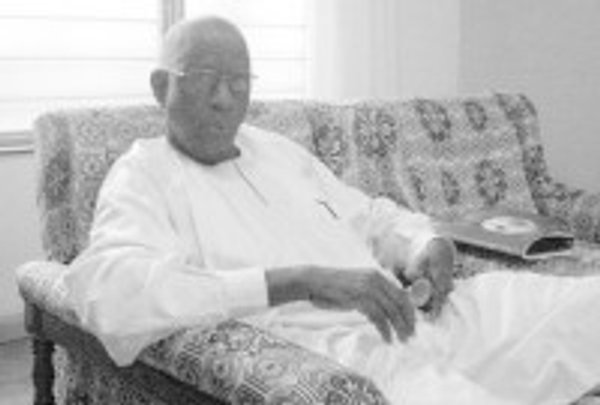This odyssey of love started in September, 1967, when I first got in contact with Opus Dei. I was already a professional teacher and then teaching in Loyola College, Ibadan. However, I decided to take a first degree in Education, (B. A) Hons., in the University of Ibadan. Coincidentally, I had a colleague who was already in contact with the Work. Through him I met Dr Jeremy White, one of the first members of Opus Dei in Nigeria. Since Dr White was also doing a PhD in History in the same university, it made our interaction much easier.
One thing led to another and in 1971, I asked for admission to the Work as a supernumerary. It was quite tedious then to combine a tasking professional work, family and social obligations with a demanding plan of formation. In fact I used to joke with my colleague (also a supernumerary) that we took turns to doze off during talks and circles. The reason was not far fetched, we usually came straight to the centre from the classroom where we had been teaching, and at that time of the day we were already tired.

A Professional Teacher
I have always been a teacher all my life. Nonetheless the immense panorama that my vocation to Opus Dei opened up for me was awesome. For the first time I saw that I had the potencial to do so much good. First with the students I spend a greater part of each day with, my fellow teachers and then their parents. And this for me was like discovering a rose in the middle of the Sahara. It may sound cynical, but the situation of teachers has never been one that inspires confidence. But Opus Dei made me see that not only can I do so much good but I can and should be happy serving others. Thus, when I go to school I do not see numbers but souls who need to be nurtured to greatness, irrespective of tribe, religion or social statues. From Loyola College, Ibadan, I moved to St Patrick College Bashorun, as the Principal. I retired in 1989 and currently live at Oshogbo.
Doing Opus Dei in Oshogbo
There is no centre of the Work there. It has also been very interesting to realise that the spirit of the Work does not depend on material structures, because in as much as they are very helpful, they are not indispensable.
Oshogbo is the capital of Osun State, in the western part of Nigeria. There is no centre of the Work there. It has also been very interesting to realise that the spirit of the Work does not depend on material structures, because in as much as they are very helpful, they are not indispensable. Thus, for me and other supernumeraries in Oshogbo, we are the conduit through which many people get to know about Opus Dei. We try to get our friends, retired civil servants like us, together. Some come for the doctrinal class, circle of Cooperators, while some accompany us to Ibadan for the monthly days of recollection.
Retired but not tired
One aspect of the spirit of Opus Dei is that the faithful have to sanctify their work. For a retired teacher, I am currently doing a lot of translations. My intention is to translate the Prayer cards to St Josemaría, Don Alvaro and (my good friend) Jeremy White from English to Yoruba. As soon as I am through with that I will start the translation of The Way as well.
Opus Dei is a family
This is not just a nice phrase, but a reality which I have witnessed. In 1982, I was in Rome for professional reasons. I however had the good fortune of meeting Don Alvaro, then Prelate of Opus Dei: a meeting I will always remember. It was amazing that one of the first things he did was to inquire about my family. Luckily I had some pictures of my wife and children which I showed him. He was so enthusiastic, that he wanted to know their names, which I gladly told him. He told me to do the norms very well. Time went by so swiftly that I didn’t realise that we had been discussing for 26 minutes. It was a conversation of a son with his father. He gave me a rosary and afterwards, added one more for my wife. At the end of the audience, he leaned on me that I almost fell. It was on my return to Nigeria that I realised that it was a symbolic gesture; which meant that the Father, counts on the support of his numerous children.
Chief Paul Adesina Famoyin
